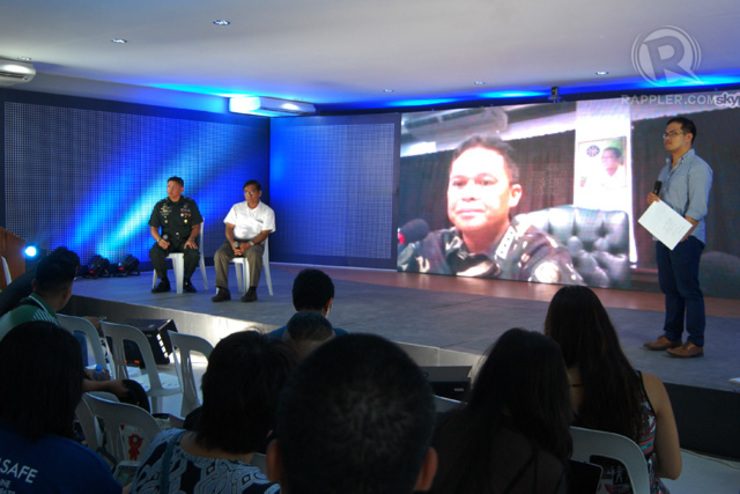SUMMARY
This is AI generated summarization, which may have errors. For context, always refer to the full article.

TACLOBAN CITY, Philippines – There’s the tension in the West Philippine Sea, there are spoilers to peace in Mindanao, and then there’s the decades-long communist insurgency.
But the Armed Forces of the Philippines (AFP) faces yet another enemy: climate change.
“We treat all typhoons as if they’re enemies of the state. Ito na ‘yung bagong giyera na haharapin namin (This is the new war we’re facing). This will be a war on climate change,” AFP chief of staff General Gregorio Catapang Jr, said via Skype during the PH+SocialGood 2014: Tacloban #2030NOW on Saturday, September 20.
Catapang was responding to a question about lessons from Typhoon Yolanda (Haiyan). Some 10 months ago, Yolanda, the strongest typhoon to make landfall in Philippine history, ravaged the Eastern Visayas region, flattening houses, killing thousands, leaving millions homeless.
It was in Tacloban where the devastation was most apparent. Two days later, the lack of food and immediate relief made the already dire situation even worse. Survivors, desperate for food, began looting local establishments.
First, it was food items. Then, appliances and whatever else they could get their hands on.
“I am a decent person. But if you have not eaten in 3 days, you do shameful things to survive,” one typhoon survivor in Tacloban city told a journalist then. (READ: Tormented typhoon victims scour for food)
Catapang admitted the AFP didn’t expect looters to take advantage of the situation back in November 2013. General Jet Velarmino, who commanded Task Force Yolanda then, said the priority was to clear the streets to allow relief and responders access to the city.
When they arrived, looters were already raiding local establishments. It was useless to intervene at that point, he said, because they were worried things would turn violent.
“I promise you that will not happen under my command,” said Catapang of the delay in the government and AFP response to Yolanda.
Catapang said the lessons from Yolanda will also figure in the “sunset review” of Republic Act 10121 or the Philippine Disaster Risk Reduction and Management Act of 2010. He emphasized that it’s one of the AFP’s top concerns.
In the Philippines, disaster relief operations are spearheaded by the military. The National Disaster Risk Reduction and Managemente Council (NDRRMC) is under the defense department through the Office of Civil Defense.
Soldiers, Catapang said, should respond “immediately” and not wait for instructions from civillians, who may also be victims themselvs. “This is a call to arms,” he added. – Rappler.com
Add a comment
How does this make you feel?
There are no comments yet. Add your comment to start the conversation.